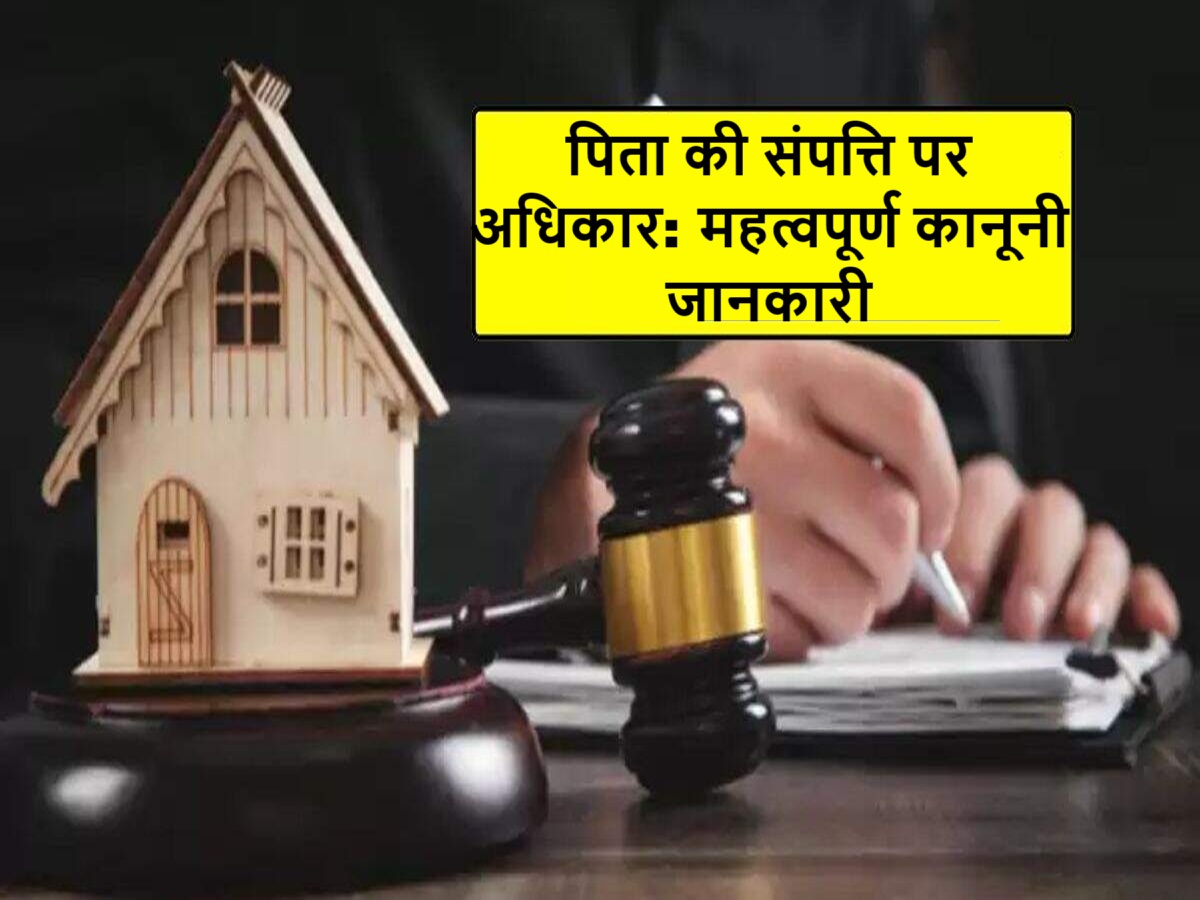In India, there are often disputes in families over the right over father’s land or property. The main reason for this is the lack of legal information and confusion. Here we will tell you in simple language what are the legal rules related to the rights of the father’s property.
What is self -acquired property?
There are mainly two types of property of any person in India. The first property that the person himself bought, gifted, received in the form of donations, or by another person, was obtained on renunciation. This type of property is called self -accredited property.
What is ancestral property?
The second type of property is what the father gets from his ancestors. Such property is called ancestral property.
Right over self -acquired property
The father is completely independent of taking his decisions in terms of property acquired. They can sell it, donate it or transfer its ownership in any other way. No one can interfere in this decision. If the father makes a will, then the person named in it will be the ownership of the same person. If the will is valid, the court gives a verdict in favor of the father. After the father’s death, if he has not created a will, sons and daughters get equal rights over property.
Right over ancestral property
Father cannot make any will on ancestral property. This property is of sons and daughters, in which both have equal rights. Earlier daughters did not get this right, but after amending the Hindu Succession Act in 2005, daughters have also been given equal rights to sons.
Difference between Hindu and Muslim law
There is a difference in property rights for Hindus and Muslims in India. According to the Hindu Succession Act, 1956, the property of the father has equal rights for sons and daughters. Muslim personal law gives more importance to sons than daughters, although the rights of daughters are gradually being strengthened due to the progressive thinking of the court.
In mind things:
- Father’s rights on the property acquired by self are complete.
- If there is no will after the father’s death, the son and daughter get equal rights.
- The ancestral property has equal rights of sons and daughters.
- The Hindu law has the same rights of sons and daughters.
- The Muslim law has given more importance to sons, although the process of improvement continues.
The Post Property Rights: How much right to son and daughter is on the property earned by the father, know what is the rule of succession first appeared on News India Live | Breaking India News, The Indian Headline, India Express News, Fast India News.
